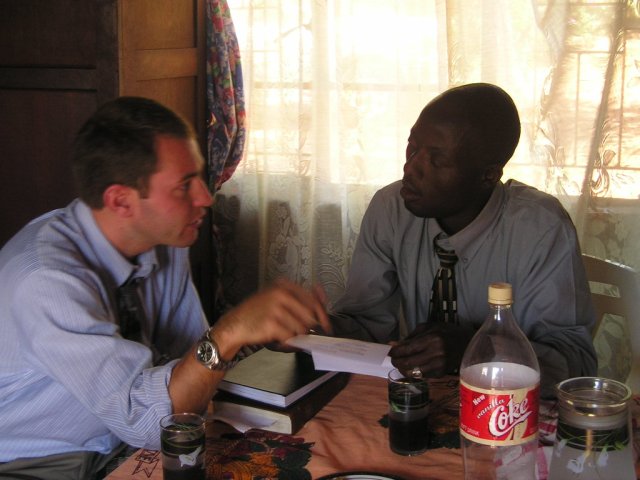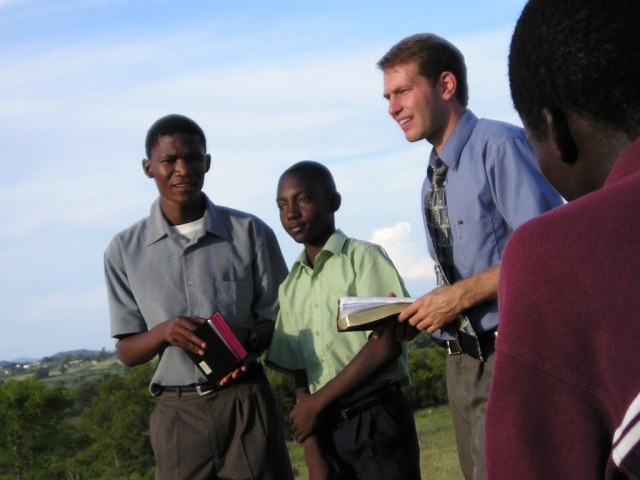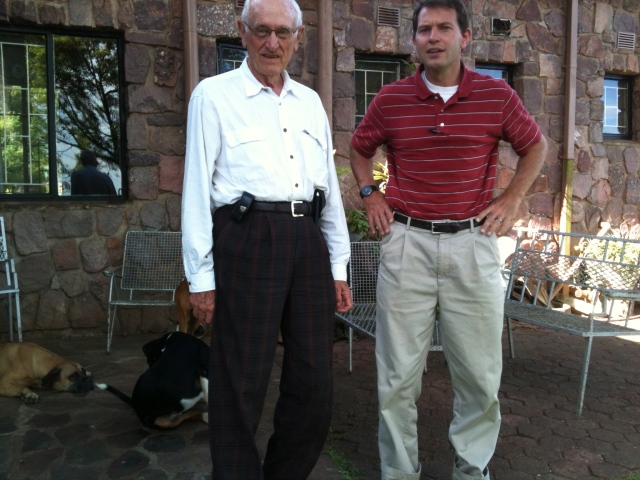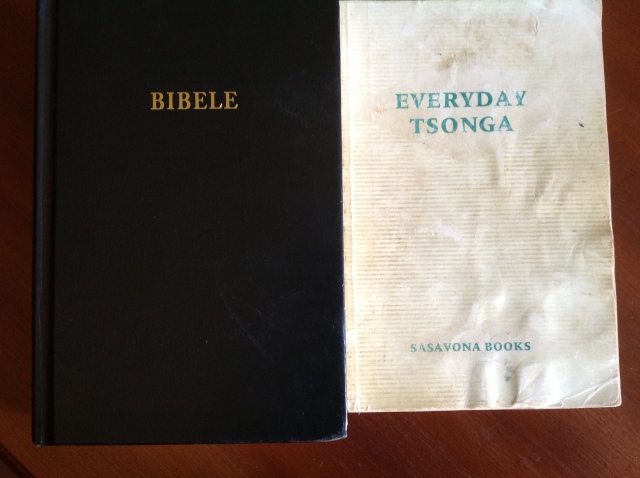 Almost every missionary who has learned a new language has a hilarious story or two about his language bloopers.
Almost every missionary who has learned a new language has a hilarious story or two about his language bloopers.Since I write out all my Bible lessons word-for-word, I don’t have too many funny mistakes to share, just average mistakes; but my husband has made some memorable gaffes that I hope will encourage all who attempt to learn a foreign language, that no matter how bad the mistake, just keep trying!
Besides innocuous one-liner funnies, like telling a line of 20 baptismal candidates to hold their sheep (tinyimpfu) instead of their noses (tinompfu), I’d like to share 2 of Seth’s worst, funniest mistakes that we still laugh about with tears and sides aching, and embarrassment!
But first as a warm-up, I’ll share a misunderstanding he had with a neighbor over terminology, which illustrates how the Tsongas will “tsongalize” an English word, and we don’t catch it; and then we laugh later at how they used or abused the English language.
Our neighbors came at 8 PM one night, upset--not at the man's immorality with a woman--but that the woman had stolen some of his paperwork, like his identity book, as well as his “tijokes.” (This guy is quite a character; he calls himself Walker Texas Ranger.) Our neighbor wanted Seth to drive him a couple villages away to retrieve these things, especially the “tijokes.”
Seth was wondering what those were—comic books? Seth tried to refuse, “It’s late!” but eventually, he drove them. Finally when they were almost back home, he discovered that “tijokes” are underwear! (We guessed it comes from the brand name Jockey.) We still tease Seth about his gallant nature in this misadventure of rescuing the man’s "tijokes."
Okay, first BIG blooper:
Upon preaching through Ephesians in youth group, Seth arrived at Ephesians 5:22. At the end of a sermon on Biblical femininity, Seth gave some practical applications to the teen girls. He was trying to translate “don’t initiate” (in the context of guys and girls), and this was yet another example of Tsonga’s limited vocabulary. He took the verb for “be first, or begin” (rhanga), and added the “-isa” ending to it (rhangisa), which changes it to “make first, or to lead.” Then he added the emphatic negative command (not just a simple negative command); like saying, “Don’t ever do this.”
It should have worked! The way he did it would have worked with most verbs; but not this one. The sermon was a total loss after that. The youth tried to control themselves; but I’ll never forget one adult woman who had attended that day, hiding her face in her arms, shoulders shaking from laughter for five full minutes!
One of them finally got up the nerve to explain after youth group. Unbeknownst to Seth, colloquially, the mothers tell their children this word to begin dressing. If there is no direct object after “rhangisa,” it colloquially means, “start dressing,” or more specifically, “Put on your underwear.”
Seth had just told the girls in a mixed youth group, in the context of what to do in relation to guys, “Don’t ever put on your underclothes!” AUGH! The good thing about mistakes like that is that you never forget the language lesson!
Second mistake:
Seth was preaching a sermon on baptism, preparing some baptismal candidates for an upcoming baptismal service. He meant to be reassuring, “You will get in the water, you will get wet, and then you will come out…”
The word for get wet is “tsakama.” He mistakenly added that “-isa” ending again, which literally means “to make wet,” but colloquially means “to urinate.” He told them, “You’ll get in the water, you’ll urinate, and then you’ll come out…”
I'm going first!
I love telling these stories, especially to fellow missionaries, because they can understand, because there is healing in the humility of making fun of yourself and a release from discouragement when you can laugh about it, and because it may encourage others to keep going in their endeavors to learn a language--because it can’t get much worse than this. :)






















